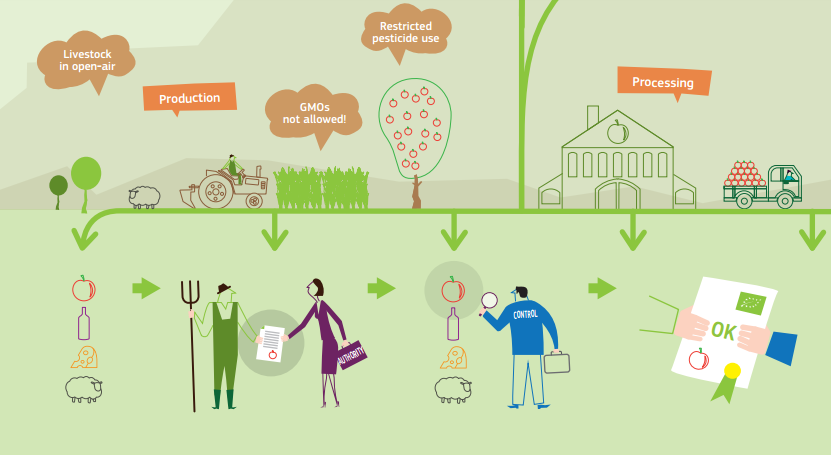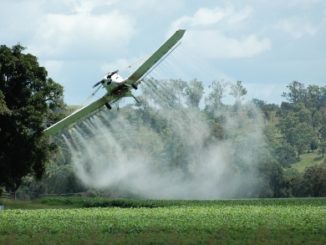“Cadmium exposure, pesticide residues and antibiotic-resistant bacteria all result in costs to society that are not typically included in the price of the fertiliser, plant protection product, or antibiotic drug. Although difficult to estimate accurately, these costs may be substantial and represent negative production externalities.”

That’s according to a major new study for the European Parliament, issued in December.
Read: “Human Health Implications of Organic Food and Organic Agriculture”
The report “Human Health Implications of Organic Food and Organic Agriculture” by the European Parliament Research Service’s Scientific Foresight Unit “reviews the existing scientific evidence regarding the impact of organic food on human health from an EU perspective and the potential contribution of organic management practices to the development of healthy food systems.”

It states: “Very few studies have directly addressed the effect of organic food on human health”. In the main, the study is inconclusive or non-committal about many health issues in part because of this. They also add that it is difficult to isolate the effects of organic food from other lifestyle factors.
However when it comes to these three public health concerns – cadmium, pesticides and antibiotics – the study makes its strongest statements.
Regarding pesticides, the study points out:
“In organic agriculture, the use of pesticides is restricted. Epidemiological studies point to the negative effects of certain insecticides on children’s cognitive development at current levels of exposure. Such risks can be minimised with organic food, especially during pregnancy and in infancy, and by introducing non-pesticidal plant protection in conventional agriculture.”
It adds “pesticides undergo a comprehensive risk assessment before market release, but important gaps remain. Of major concern, these risk assessments disregard evidence from epidemiological studies that show negative effects of low-level exposure to organophosphate insecticides on children’s cognitive development, despite the high costs of IQ losses to society…

Organic agriculture provides both a source of food with low pesticide residues and an environment in which agronomic techniques for pesticide-free plant protection are developed. These techniques can be adopted in conventional production, thereby aiding a transition towards integrated pest management and overall lower pesticide exposure of the population and the environment.”
Cadmium (Cd) “is toxic to the kidneys, can demineralise bones and is carcinogenic” the study states, before adding that “the Cd content of crops is therefore of immediate relevance to human health”.
Because “the source of Cd in mineral fertilisers is the raw material phosphate rock”…“the long-term use of mineral phosphorus fertiliser has contributed to increased cadmium concentrations in agricultural soils.”
“Low soil organic matter generally increases the availability of Cd for crops, and organically managed farms tend to have higher soil organic matter than conventionally managed farms”.
Nevertheless, the study claims that while “indications are that organic production results in lower cadmium concentrations”, this is ”not certain”. However “long-term experiments over more than 100 years indicate that cereal crops fertilised with mineral fertiliser tend to have a higher cadmium content compared to cereal crops fertilised with animal manure.”
For antibiotic resistance, the study notes that while factors outside animal husbandry inevitably play a role, it is also the case that “the World Health Organization has identified the overly prevalent use of antibiotics in animal production to be one of the contributing factors to increased antibiotic resistance in bacteria. However, the restricted use of antibiotics in organic systems could minimise this risk.”
“The preventive use of antibiotics is heavily restricted in organic husbandry where the maintenance of animal health instead relies on preventive management factors, such as hygiene measures and decreasing stocking density. The use of antibiotics has been clearly linked to the risk of developing antibiotic resistance in bacteria. Consequently, there is a lower risk of the development of antibiotic resistance in organic animal husbandry.”
Overall, while much is left up in the air in this study, when it comes to these three genuine public health concerns – cadmium exposure, pesticide residues and antibiotic-resistant bacteria – organic farming and food challenge the conventional sector to step up or move over.
This article by ARC2020’s Oliver Moore first appeared in Irish Examiner Farming





